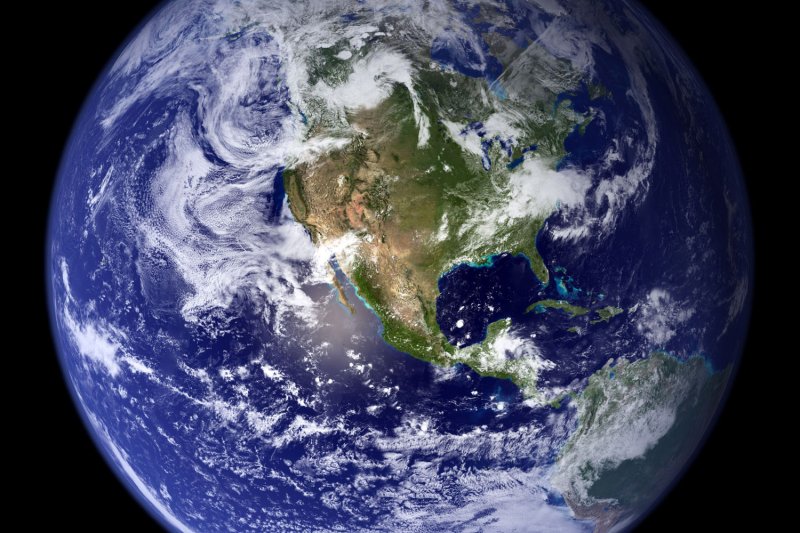Planet Earth and humanity are in trouble if humans don't alter their behavior, scientists warn. Photo by UPI Photo/NASA |
License Photo
Nov. 15 (UPI) -- More than 16,000 scientists from across the globe have signed their name to an updated warning letter to humanity.
The letter predicts dire consequences for the planet and the human race if human behavior isn't altered and Earth's ecosystems and natural resources aren't better protected.
"Human beings and the natural world are on a collision course," warned the first version of the letter, published in 1992.
The new letter, published Monday in the journal BioScience, serves as an update to the original "warning to humanity" letter, which was signed by 1,700 scientists at the time.
The problems raised in the original letter remain unsolved, and many of them are worsening, scientists say. They include: air and water pollution, shrinking fish stocks, deforestation, declines in soil health, loss of biodiversity and manmade global warming.
"Humanity has failed to make sufficient progress in generally solving these foreseen environmental challenges, and alarmingly, most of them are getting far worse," the scientists, hailing from 184 different countries, write.
In the 25 years between the two letters, scientists point to a lone bright spot of progress: the shrinking of the ozone layer. Scientists suggest the ongoing regeneration of the ozone is proof humans can reverse course if they take decisive action.
The letter features several actions scientists believe are necessary to stave off ecological catastrophe. They include: establishing more nature reserves, investing in green technologies, curbing food waste, and instituting economic incentives to create more sustainable patterns of consumption.















